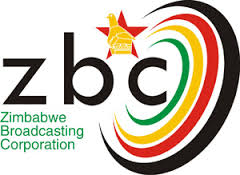Story by Tamuka Charakupa
LOCAL coffee production is on the rebound, with close to 2 000 small-scale farmers now growing the cash crop.
In 1989, coffee production in Zimbabwe reached a peak of close to 15 000 metric tonnes, but various challenges over the past decades that include the transformation of farming models significantly pushed down production to just over 200 tonnes in 2010.
Intensive government intervention coupled with a variable coffee price of $6.50 per kilogramme has attracted close to 2 000 small-scale farmers countrywide, up from about 215 in 2021.
“I am now 100 percent into coffee production because I have realised that it is a lucrative crop. I am playing my part to support the vision of the President. We should utilise the land that we have towards productivity,” said Simon Sabani.
“Chipinge was a coffee hub. We used to work in the white-owned farms where we would produce a lot but since we are now controlling the land, we need to put it to good use,” said Phebion Muhlaba Mugobo.
Technoserve Coffee Production Manager Dr Midway Bhunu is upbeat the country has the potential to match its five thousand tonnes coffee milling capacity if more efforts are channelled towards increased production.
“We have two commercial coffee plantations and over 1 000 farmers who are growing coffee. This is a very huge increment because when we started training, we had less than 300 farmers in 2018 and we are happy with the rate at which coffee production is growing because 95 percent is exported and only 5 percent is consumed locally, safe to say coffee is an export crop.”
The government through the Coffee Research Institute and the Department of Research and Specialist Services is providing farmers with technical support.
“As the Coffee Research Institute we exist to provide technical support and the latest insights as far as good agricultural practices are concerned, we are doing very well. We believe that a multi-sectoral approach is critical towards the revival of coffee production in the country,” said Ms Natalie Tsikwaurere (Research Officer, Department of Research and Specialist Services.
Chipinge District Development Coordinator Mr William Mashava challenged farmers to push for value addition of their produce.
“We are proud as ours is the highest coffee producer among all the producing districts. The district has magnificent conditions for the cultivation of different crops such as coffee, tea, bananas, macadamia, avocados and a host of other crops which can be strengthened to uplift the livelihoods of our people. My plea to our farmers is that we should push towards value addition so that we gain as opposed to selling raw products,” he said.
The government is targeting to achieve a US$8.2 billion agriculture economy by 2025 and increase agriculture contribution to the GDP from 12 to 20%, with coffee identified as one of the strategic enterprises in pursuit of that target.
Coffee is a global multibillion-dollar crop and the most traded commodity after oil.




